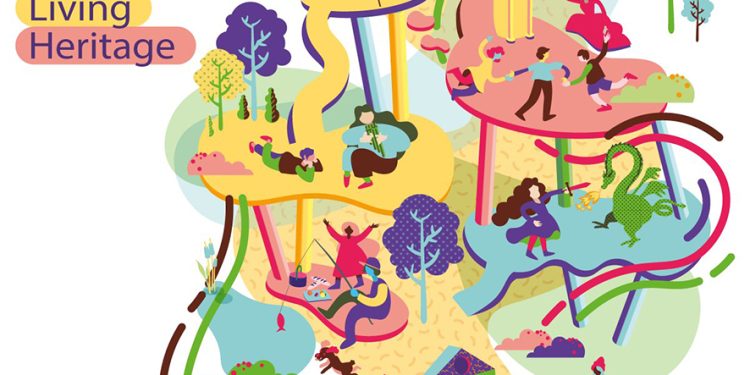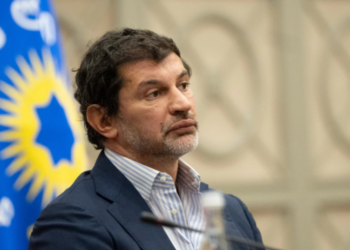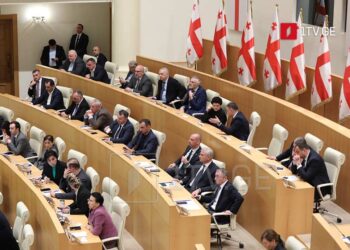The European Heritage Days initiative is celebrating the end of this season’s activities showcasing the rich tapestry of cultural, historical, and artistic treasures that define the heart and soul of Europe and shape its collective identity.
From mid-August to early November 2023, tens of thousands of events across Europe served as open doors to Europe’s heritage treasures for the public, offering an immersive experience of the tangible and intangible aspects of our shared cultural legacy. Under the pan-European theme “Living Heritage”, this year’s events encouraged participants to engage with cultural traditions and practices, as well as knowledge and skills that have been passed down through generations.
“This year’s European Heritage Days have been a celebration of ‘Living Heritage’ in every sense of the word,” said Salome Jamburia (Georgia), the newly elected Chair of the European Heritage Days National Coordinators Assembly. “We’ve witnessed local communities come together to share their stories, traditions, customs and practices, creating a vibrant mosaic that reflects the resilience and continuity of European culture.”
Throughout the 2023 season, visitors to the European Heritage Days had the opportunity to explore heritage sites, museums, and landmark monuments, gaining insights into the living history that surrounds them. Participants across 48 countries were also treated to a diverse array of activities, including guided tours, workshops, exhibitions, and performances, that showcased the vitality of Europe’s cultural heritage. From craft days in Skansen, Sweden, and exploration of art of chalcography in Saint-Denis, France, to guided tours in Ukrainian at Villa Borghese in Rome, Italy, and uncovering archaeological treasures in Münster, Germany – the “Living Heritage” theme allowed for a dynamic exploration of the ways in which the past continues to shape the present.
“The European Heritage Days 2023 season may have concluded, but the spirit of ‘Living Heritage’ lives on in the hearts and minds of those who participated. As we bid adieu to this year’s festivities, we are thrilled to unveil the theme for the upcoming year: ‘Routes, Networks, and Connections’,” Jamburia added.
Preparations for the next year’s events are already underway, with organizers gearing up to create an engaging and enriching experience for participants in 2024. The European Heritage Days initiative invites communities, heritage sites, and cultural institutions to join forces in exploring the 2024 pan-European theme “Routes, Networks, and Connections.”
European Heritage Days are being celebrated in 48 European countries and can sometimes bear a different name :“Tag des Denkmals” (Austria), “Journées du Patrimoine”, “Open Monumententdag” (Belgium and Netherlands), “Muinsuskaitsepäevade” (Estonia), “Tag des offenen Denkmals” (Germany), “Kulturális Örökség Napjai” (Hungary), “National Heritage Week” (Ireland), “Kulturminnedagene” (Norway), “Kulturarvsdagen” (Sweden), “Heritage Open Days”, “Open House London”, “Doors Open Days” and “Drysau Agored” (United Kingdom).
Launched by the Council of Europe in 1985 in France, the European Heritage Days have been organised as a joint initiative of the European Commission and the Council of Europe since 1999. They are prepared under the supervision of National Coordinators in the signatory countries to the European Cultural Convention. Within each country, a network of regional and local authorities, civic and private groups and thousands of volunteers are in charge of organising events. At the end of every edition the Assembly of National Coordinators meets in Strasbourg to share their experiences, present local success stories, and plan for the year ahead. Salome Jamburia (Georgia) was elected the Chair of the Assembly of National Coordinators at the latest session in November 2023 for a period of two years.
European Heritage Days Conclude 2023 Season and Unveil Theme for 2024 – “Routes, Networks and Connections”
Reading Time: 2 mins read
Recommended
Highlights
Trending
Experience Seamless Connectivity with Silknet eSIM in Georgia
Why Silknet's eSIM could be your top choice in Georgia Since its introduction, eSIM technology has become...














